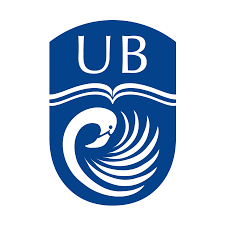Engendering The Bahamas: A Gendered Examination of Bahamian Nation Making, or National Identity and Gender in the Bahamian Context
DOI:
https://doi.org/10.15362/ijbs.v12i0.54Keywords:
Bahamian cultureAbstract
Referendum 2002: gender and the Bahamian citizenry. On February 27, 2002 Bahamians voted in a referendum to amend the country's constitution. There were several issues to be decided, but the one that caused the most debate was the question of citizenship. Under the present constitution, the way in which Bahamian citizenship is conferred on the spouses and children of Bahamian women, is, to say the least, irregular. The wives of Bahamian men are entitled to Bahamian citizenship; the husbands of Bahamian women are not granted any such entitlement and have to apply for citizenship like any other would-be immigrant. Similarly, the children of Bahamian men, whether born in the Bahamas or not, are Bahamians at birth; the children of Bahamian women have a far more complex fate. If a woman is unmarried, and has a child outside the Bahamas, her child is born Bahamian. But if she is married to a non-Bahamian, and gives birth outside the country, that child is merely entitled to apply for citizenship between the ages of eighteen and twenty-one, and may be refused. If offered citizenship, the child is then forced to renounce any other citizenship inorder to receive Bahamian status. The recent referendum has generated plenty of political hay and I have no intention of adding straw to the pile. What interests me about this state of affairs is what is suggests about the way in which gender figures in the imagination of the Bahamian nation, and as such, I shall use it as a case study to test the ideas I raise in my discussion.References
Alleyne, B. W. (1998). 'People's war': Cultural activism in the Notting Hill Carnival. Cambridge Journal of Anthropology, 20(1/2), 111-135. https://www-jstor.org/stable/23820313
Anderson, B. (1991). Imagined Communities: Reflections on the origin and spread of nationalism (2nd ed.). Verso.
Anderson, P. G. (1998, June 4-6). Paradigms of power in Bahamian literature. [Paper presentation]. Uncovering Bahamian Selves: First conference on Bahamian culture, Nassau.
Anderson, P. G. (2000). Paradigms of power: Gender analysis in Bahamian literature. Yinna: Journal of the Bahamas Association for Cultural Studies, 1, 88-103.
Ashcroft, B., Griffiths, G., & Tiffin, H. (Eds.). (1989). The empire writes back. Routledge.
Austin, D. J. (1979). History and symbols in ideology: A Jamaican example. Man, 14(3), 497-514. History and symbols in ideology: A Jamaican example
Bain, V. (1996). Junkanoo and public order in The Bahamas, 1890-1930s [Unpublished History Tripos thesis, University of Cambridge].
Barrow, C. (1986). Finding the support: a study of strategies for survival. Social and Economic Studies, 35(2), 131-176. https://www.jstor.org/stable/27862841
Besson, J. (1993). Reputation and respectability reconsidered: A new perspective on Afro-Caribbean peasant women. In J. H. Momsen (Ed.), Women and change in the Caribbean. Ian Randle.
Bethel, E. C. (1991). Junkanoo: Festival of The Bahamas. Macmillan Caribbean.
Bethel, N. (1992). Bringing the Bahamas into fiction. Lignum Vitae Journal, 1(1), 62-66.
Bethel, N. (1998, June 4-6). Redefining national space [Paper presentation]. Uncovering Bahamian Selves: first conference on Bahamian culture, Nassau.
Bethel, N. (1993). Bahamian kinship and the power of women [Unpublished MPhil thesis, University of Cambridge]. https://doi.org/10.13140/RG.2.1.1508.4649
Bethel, N. (1994). Ain't nobody gone take it from you: Bahamian Junkanoo [Unpublished manuscript].
Bethel, N. (2000a). Navigations: National identity and the archipelago. Yinna: Journal of the Bahamas Association for Cultural Studies, 1, 21-38.
Bethel, N. (2000b). Navigations: The fluidity of national identity in the postcolonial Bahamas [Unpublished doctoral dissertation, University of Cambridge]. https://ufdc.ufl.edu/AA00007511/00001
Bhabha, H. K. (Ed.). (1990). Nation and narration. Routledge.
Bloch, M. (1986). From blessing to violence. Cambridge University Press.
Craton, M., & Saunders, G. (1998). Islanders in the stream: A history of the Bahamian people. Vol.2: From the ending of slavery to the twenty-first century. University of Georgia Press.
Dahl, A. G. (1995). Literature of the Bahamas 1724-1992: The march towards national identity. University Press of America.
Eriksen, T. H. (1994). The author as anthropologist: Some West Indian lessons about the relevance of fiction for anthropology. In E. P. Archetti (Ed.), Exploring the written: Anthropology and the multiplicity of writing (pp. 167-196). Scandinavian University Press.
Foster, R. J. (1995). Introduction: The work of nation making. In R. J. Foster (Ed.), Nation making: Emergent identities in postcolonial Melanesia (pp. 1-30). The University of Michigan Press.
Geertz, C. (1993). After the revolution: The fate of nationalism in the new states. In C. Geertz, The interpretation of cultures: Selected essays (pp. 234-254). Fontana.
Gellner, E. (1983). Nations and nationalism. Basil Blackwell.
Georges, P. T. (1992). The role of the creative writer in a developing society. Lignum Vitae Journal, 1(1), 58-60.
Glinton-Meicholas, P. (1994). How to be a true-true Bahamian: A hilarious look at life in the Bahamas. Guanima Press.
Glinton-Meicholas, P. (2000). Uncovering the Bahamian self. Yinna: Journal of the Bahamas Association for Cultural Studies, 1, 104-110.
Harney, S. (1993). Imagined Trinidads: Nationalism and literature in a Caribbean diaspora [Unpublished doctoral dissertation, University of Cambridge].
Harney, S. (1996). Nationalism and identity: Culture and imagination in a Caribbean diaspora. University of the West Indies.
Hobsbawm, E. (1983). Introduction: Inventing traditions. In E. Hobsbawm (Ed.), The invention of tradition. Cambridge University Press.
Hobsbawm, E., & Ranger, T. (Eds.). (1983). The invention of tradition. Cambridge University Press.
Huggins, C. (1992). Acknowledgements. Lignum Vitae Journal, 1(1), i.
James, C. L. R. (1963/1938). The black Jacobins. Vintage.
Johnson, H. (2000). National identity and Bahamian culture. Yinna: Journal of the Bahamas Association for Cultural Studies, 1, 13-20.
Keesing, R. M., & Strathern, A. (1998). Cultural anthropology: A contemporary perspective. Harcourt Brace and Company.
Lavie, S. (1996). Blowups in the border zones: Third World Israeli authors' gropings for home. In S. Lavie & T. Swedenburg (Eds.), Displacement, diaspora, and geographies of identity (pp. 55-96). Duke University Press.
Miller, D. (1991). Absolute freedom in Trinidad. Man, 26(2), 323-341. https://doi.org/10.2307/2803835
Miller, D. (1994). Modernity — an ethnographic approach: Dualism and mass consumption in Trinidad. Berg.
Nettleford, R. (1970). Mirror mirror: Identity, race and protest in Jamaica. William Collins and Sangster.
Nettleford, R. (1978). Caribbean cultural identity: An essay in cultural dynamics. Institute of Jamaica.
Ngugi wa Thiong'o. (1981). Writers in politics. In Ngugi wa Thiong'o (Ed.), Writers in politics: Essays. (pp. 72-81). Heinemann.
Ortner, S. B. (1974). Is female to male as nature is to culture? In M. Z. Rosaldo & L. Lamphere (Eds.), Woman, culture, and society (pp. 67-87). Stanford University Press.
Otto, T., & Thomas, N. (Eds.). (1997). Narratives of nation in the South Pacific. Harwood Academic Publishers.
Pratt, T. (1998, June 4-6). Current trends in women's visual expression [Paper presentation]. Uncovering Bahamian Selves: first conference on Bahamian culture, Nassau.
Rahming, A. (1998, June 4-6). The subversion of Biblical stories in Bahamian women's literature [Paper presentation]. Uncovering Bahamian Selves: first conference on Bahamian culture, Nassau.
Rahming, P. (1992a). Introduction. Lignum Vitae Journal, 1(1), ii.
Rahming, P. (1992b). The naïve agenda: Social and political issues for the Bahamas through the eyes of a confessed dreamer.
Ray, S. (2000). En-gendering India: Woman and nation in colonial and postcolonial narrative. Duke University Press.
Rosaldo, M. Z. (1974). Woman, culture, and society: A theoretical overview. In M. Z. Rosaldo & L. Lamphere (Eds.), Woman, culture, and society (pp. 17-42). Stanford University Press.
Sampath, N. (1997). Mas' identity: Tourism and global and local aspects of Trinidad carnival. In S. Abram & J. Waldren & D. V. L. Macleod (Eds.), Tourists and tourism: Identifying with people and places (pp. 149-171). Berg.
Sanday, P. R. (1981). Female power and male dominance: On the origins of sexual inequality. Cambridge University Press.
Stoler, A. L. (1997). Carnal knowledge and imperial power: Gender, race, and morality in colonial Asia. In R. N. Lancaster & M. D. Leonardo (Eds.), The gender/sexuality reader: Culture, history, political economy (pp. 13-36). Routledge.
Strachan, I. G. (1995). Paradise and plantation: The economy of Caribbean discourse [Doctoral dissertation, University of Pennsylvania]. https://repository.upenn.edu/dissertations/AAI9615131
Turner, V. W. (1967). Betwixt and between: The liminal period in Rite de Passage. In V. Turner (Ed.), The forest of symbols: Aspects of Ndembu ritual (pp. 93-111). Cornell University Press.
van Koningsbruggen, P. H. (1997). Trinidad carnival: A quest for national identity. Macmillan Caribbean.
Wilson, P. J. (1969). Reputation and respectability: A suggestion for Caribbean ethnology. Man, 4(1), 70-84. https://doi.org/10.2307/2799265








